第44章 ROUND THE COCOS AND SEYCHELLES(1)
Hitherto, with the exception of a couple of gales in the North and South Atlantic, we had been singularly fortunate in our weather.It does happen so sometimes.
I remember once making a round voyage from Cardiff to Hong Kong and the Philippines, back to London, in ten months, and during the whole of that time we did not have a downright gale.The worst weather we encountered was between Beachy Head and Portland, going round from London to Cardiff.
And I once spoke the barque LUTTERWORTH, a companion ship to us from Portland, Oregon to Falmouth, whose mate informed me that they carried their royals from port to port without ever furling them once, except to shift the suit of sails.But now a change was evidently imminent.Of course, we forward had no access to the barometer; not that we should have understood its indications if we had seen it, but we all knew that something was going to be radically wrong with the weather.For instead of the lovely blue of the sky we had been so long accustomed to by day and night, a nasty, greasy shade had come over the heavens, which, reflected in the sea, made that look dirty and stale also.That well-known appearance of the waves before a storm was also very marked, which consists of an undecided sort of break in their tops.
Instead of running regularly, they seemed to hunch themselves up in little heaps, and throw off a tiny flutter of spray, which generally fell in the opposite direction to what little wind there was.The pigs and fowls felt the approaching change keenly, and manifested the greatest uneasiness, leaving their food and acting strangely.We were making scarcely any headway, so that the storm was longer making its appearance than it would have been had we been a swift clipper ship running down the Indian Ocean.For two days we were kept in suspense; but on the second night the gloom began to deepen, the wind to moan, and a very uncomfortable "jobble" of a sea got up.Extra, "gaskets"were put upon the sails, and everything movable about the decks was made as secure as it could be.Only the two close-reefed topsails and two storm stay-sails were carried, so that we were in excellent trim for fighting the bad weather when it did come.
The sky gradually darkened and assumed a livid green tint, the effect of which was most peculiar.
The wind blew fitfully in short, gusts, veering continually back and forth over about a quarter of the compass.Although it was still light, it kept up an incessant mournful moan not to be accounted for in any way.Darker and darker grew the heavens, although no clouds were visible, only a general pall of darkness.
Glimmering lightnings played continually about the eastern horizon, but not brilliant enough to show us the approaching storm-cloud.And so came the morning of the third day from the beginning of the change.But for the clock we should hardly have known that day had broken, so gloomy and dark was the sky.At last light came in the east, but such a light as no one would wish to see.It was a lurid glare, such as may be seen playing over a cupola of Bessemer steel when the speigeleisen is added, only on such an extensive scale that its brilliancy was dulled into horror.Then, beneath it we saw the mountainous clouds fringed with dull violet and with jagged sabres of lightning darting from their solid black bosoms.The wind began to rise steadily but rapidly, so that by eight a.m.it was blowing a furious gale from E.N.E.In direction it was still unsteady, the ship coming up and falling off to it several points.Now, great masses of torn, ragged cloud hurtled past us above, so low down as almost to touch the mastheads.Still the wind increased, still the sea rose, till at last the skipper judged it well to haul down the tiny triangle of storm stay-sail still set (the topsail and fore stay-sail had been furled long before), and let her drift under bare poles, except for three square feet of stout canvas in the weather mizen-rigging.The roar of the wind now dominated every sound, so that it might have been thundering furiously, but we should not have heard it.The ship still maintained her splendid character as a sea-boat, hardly shipping a drop of water; but she lay over at a most distressing angle, her deck sloping off fully thirty-five to forty degrees.
Fortunately she did not roll to windward.It may have been raining in perfect torrents, but the tempest tore off the surface of the sea, and sent it in massive sheets continually flying over us, so that we could not possibly have distinguished between fresh water and salt.
The chief anxiety was for the safety of the boats.Early on the second day of warning they had been hoisted to the topmost notch of the cranes, and secured as thoroughly as experience could suggest; but at every lee lurch we gave it seemed as if we must dip them under water, while the wind threatened to stave the weather ones in by its actual solid weight.It was now blowing a furious cyclone, the force of which has never been accurately gauged (even by the present elaborate instruments of various kinds in use).That force is, however, not to be imagined by any one who has not witnessed it, except that one notable instance is on record by which mathematicians may get an approximate estimate.